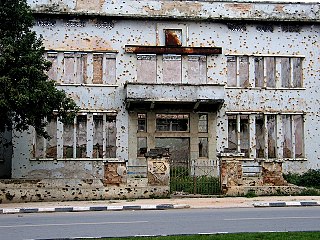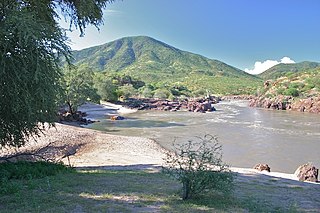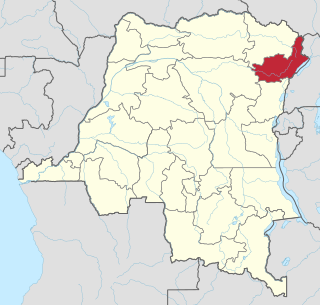
United Nations Security Council resolution 1173, adopted unanimously on 12 June 1998, after reaffirming Resolution 696 (1991) and all subsequent resolutions on Angola, particularly Resolution 1127 (1997), the council announced its intention to impose further sanctions against UNITA for non-compliance, unless it co-operated to extend state administration throughout the country.
United Nations Security Council Resolution 226 was adopted unanimously by the United Nations Security Council on October 14, 1966. The Council urged the government of Portugal to prevent foreign mercenaries in the Portuguese territory of Angola from interfering in the domestic affairs of the Democratic Republic of the Congo (DRC).

United Nations Security Council resolution 546, adopted on 6 January 1984, after hearing representations from the People's Republic of Angola, the council recalled resolutions 387 (1976), 428 (1978), 447 (1979), 454 (1979), 475 (1980) and 545 (1983), and expressed its concern at the continuing attacks on the country by South Africa through occupied South West Africa.

United Nations Security Council resolution 567, adopted unanimously on 20 June 1985, after hearing representations from the People's Republic of Angola, the Council recalled resolutions including 387 (1976), 428 (1978), 447 (1979), 454 (1979), 475 (1980), 545 (1983) and 546 (1984), and expressed its concern at the continuing attacks on the country by South Africa through occupied South West Africa.

United Nations Security Council resolution 823, adopted unanimously on 30 April 1993, after reaffirming resolutions 696 (1991), 747 (1992), 785 (1992), 793 (1992), 804 (1993) and 811 (1993), the Council expressed support for the ongoing peace talks in Abidjan between the Government of Angola and UNITA under United Nations auspices and decided to extend the mandate of the United Nations Angola Verification Mission II until 31 May 1993.

United Nations Security Council resolution 864, adopted unanimously on 15 September 1993, after reaffirming resolutions 696 (1991), 747 (1992), 785 (1992), 793 (1992), 804 (1993), 811 (1993), 823 (1993), 834 (1993) and 851 (1993), the Council noted the continuing situation in Angola and went on to condemn and place international sanctions on UNITA.

United Nations Security Council resolution 903, adopted unanimously on 16 March 1994, after reaffirming Resolution 696 (1991) and all subsequent resolutions on Angola, the Council strengthened and extended the mandate of the United Nations Angola Verification Mission II until 31 May 1994.

United Nations Security Council resolution 1180, adopted unanimously on 29 June 1998, after reaffirming Resolution 696 (1991) and all subsequent resolutions on Angola, particularly resolutions 1173 (1998) and 1176 (1998), the Council extended the mandate of the United Nations Observer Mission in Angola (MONUA) until 15 August 1998.

United Nations Security Council resolution 1221, adopted unanimously on 12 January 1999, after reaffirming Resolution 696 (1991) and all subsequent resolutions on Angola, particularly resolutions 1196 (1998) and 1219 (1998), the Council condemned the downing of two commercial planes over UNITA-controlled territory in Angola and demanded that UNITA leader Jonas Savimbi co-operate in the search for survivors of the recent plane crashes.

United Nations Security Council resolution 1234, adopted unanimously on 9 April 1999, after expressing concern at the situation in the Democratic Republic of the Congo, the Council demanded an immediate halt to hostilities in the region, a withdrawal of foreign forces and the re-establishment of the government's authority.

United Nations Security Council resolution 1336, adopted unanimously on 23 January 2001, after reaffirming Resolution 864 (1993) and all subsequent resolutions on Angola, particularly resolutions 1127 (1997), 1173 (1998), 1237 (1999) and 1295 (2000), the Council extended the monitoring mechanism of sanctions against UNITA for a further three months.

United Nations Security Council resolution 1348, adopted unanimously on 19 April 2001, after reaffirming Resolution 864 (1993) and all subsequent resolutions on Angola, particularly resolutions 1127 (1997), 1173 (1998), 1237 (1999), 1295 (2000) and 1336 (2001), the council extended the monitoring mechanism of sanctions against UNITA for a further six months until 19 October 2001.

United Nations Security Council resolution 1374, adopted unanimously on 19 October 2001, after reaffirming Resolution 864 (1993) and all subsequent resolutions on Angola, particularly resolutions 1127 (1997), 1173 (1998), 1237 (1999), 1295 (2000), 1336 (2001) and 1348 (2001), the council extended the monitoring mechanism of sanctions against UNITA for a further six months until 19 April 2002.

United Nations Security Council resolution 1376, adopted unanimously on 9 November 2001, after recalling all previous resolutions on situation in the Democratic Republic of the Congo, the Council supported the third phase of the deployment of the United Nations Mission in the Democratic Republic of Congo (MONUC).

United Nations Security Council resolution 1404, adopted unanimously on 18 April 2002, after reaffirming Resolution 864 (1993) and all subsequent resolutions on Angola, particularly resolutions 1127 (1997), 1173 (1998), 1237 (1999), 1295 (2000), 1336 (2001), 1348 (2001) and 1374 (2001), the council extended the monitoring mechanism of sanctions against UNITA until 19 October 2002.

United Nations Security Council resolution 1439, adopted unanimously on 18 October 2002, after reaffirming Resolution 864 (1993) and all subsequent resolutions on Angola, particularly resolutions 1127 (1997), 1173 (1998), 1237 (1999), 1295 (2000), 1336 (2001), 1348 (2001), 1374 (2001), 1404 (2002), 1412 (2002) and 1432 (2002), the council extended the monitoring mechanism of sanctions against UNITA for two months until 19 December 2002 and lifted a travel ban against its members.

United Nations Security Council resolution 1448, adopted unanimously on 9 December 2002, after reaffirming Resolution 864 (1993) and all subsequent resolutions on Angola, particularly resolutions 1127 (1997), 1173 (1998), 1237 (1999), 1295 (2000), 1336 (2001), 1348 (2001), 1374 (2001), 1404 (2002), 1412 (2002), 1432 (2002), 1434 (2002) and 1439 (2002), the Council noted progress in the country and lifted remaining sanctions against UNITA, including an arms embargo, travel restrictions and the freezing of assets.

United Nations Security Council resolution 1468, adopted unanimously on 20 March 2003, after recalling previous resolutions on the situation in the Democratic Republic of the Congo, the Council welcomed an agreement on the establishment of a transitional government and requested an increased presence of the United Nations Mission in the Democratic Republic of Congo (MONUC) in the Ituri region in the east of the country amid escalating violence.

United Nations Security Council resolution 1533, adopted unanimously on 12 March 2004, after recalling all previous resolutions on the situation in the Democratic Republic of the Congo, the council established a committee to monitor an arms embargo imposed on all foreign and Congolese forces in the east of the country.

United Nations Security Council resolution 1596, adopted unanimously on 18 April 2005, after recalling all previous resolutions on the situation in the Democratic Republic of the Congo, including resolutions 1493 (2003), 1533 (2004), 1552 (2004), 1565 (2004) and 1592 (2005), the council expanded the arms embargo to include all recipients of weapons in the country, and imposed a travel ban and asset freeze on those violating the embargo.
















